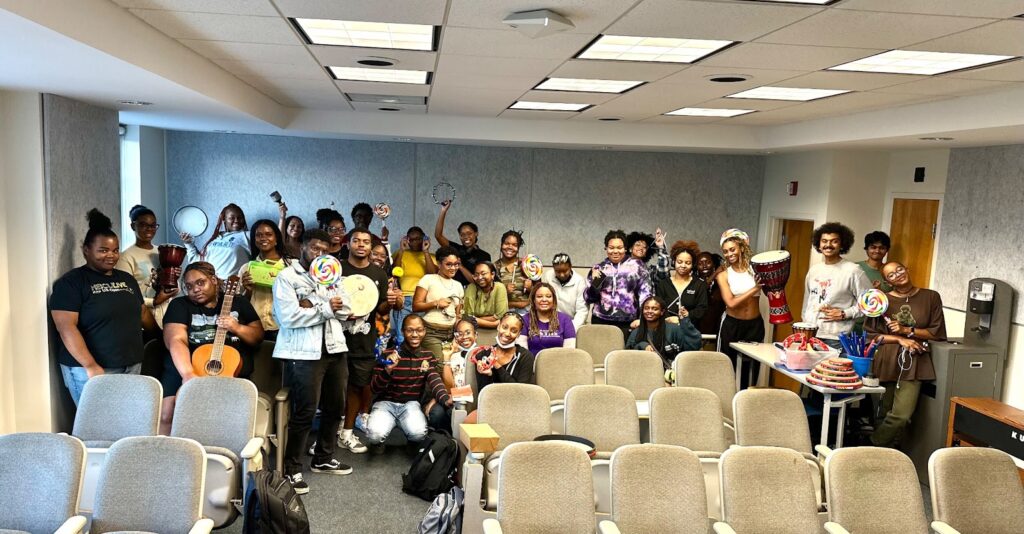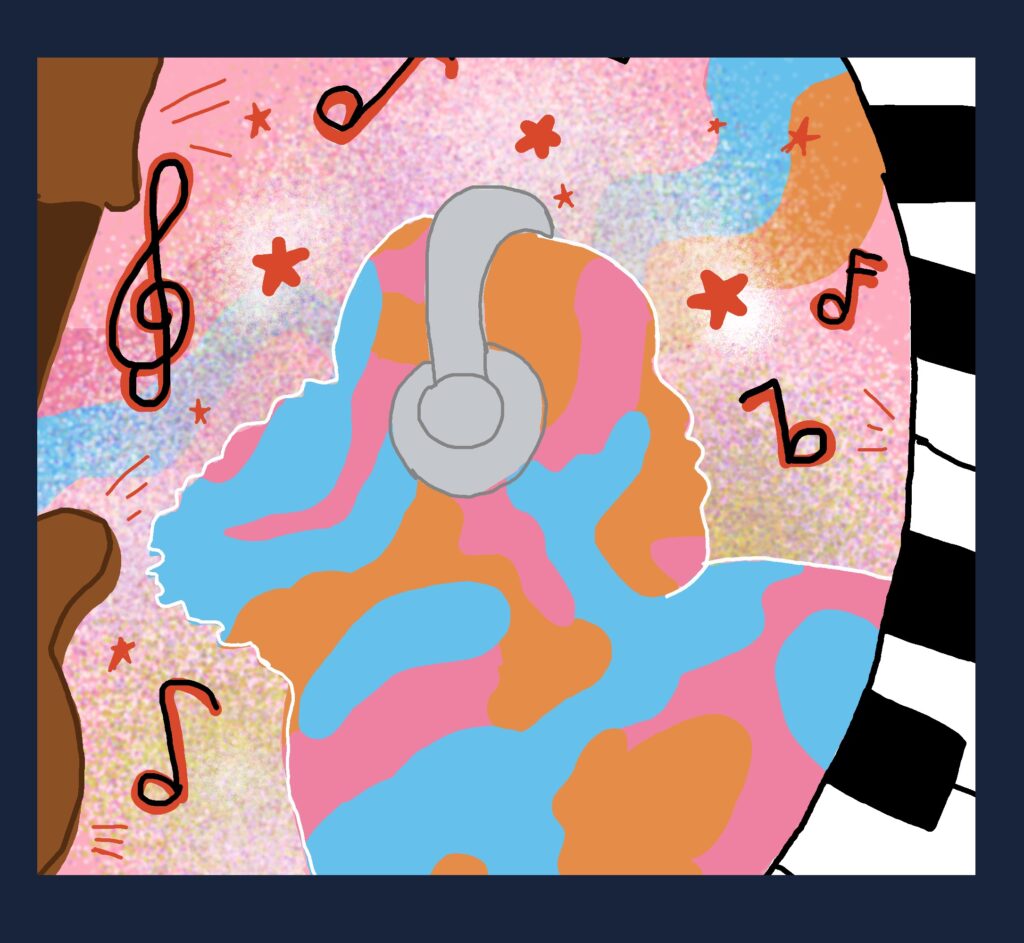
Hands beat the zills on tambourines, fingers plucked the strings of guitars and a group of almost 40 students hummed and swayed to music in a small auditorium on the third floor of the Chadwick A. Boseman College of Fine Arts building last month. What could be reminiscent of an impromptu concert to those passing by is the newly revived HU Music Therapy club.
Charay Allison and Kira Hardin-James, senior music therapy majors and the president and vice president of the HU Music Therapy Club, are dedicated to creating a safe and harmonious space that embodies the essence of “come as you are” in a way that goes beyond words.
“Music therapy is using interventions to help alter or mend your clients, either physical or mental state. Psychology-wise, or mental health-wise, or mental illness-wise, it’s mainly used like [for] substance abuse, anxiety disorders, major depressive disorders,” Allison explained. “If you happen to take a trip to the psych ward, you’re probably going to work with a music therapist while you’re there… music reaches parts of the brain that regular words cannot reach.”
According to the National Center for Complementary and Integrative Health, music therapy consists of listening and making music to promote health and manage disease symptoms. Though a lot of music and health-related data is preliminary, it still shows a lot of benefits.
HU Music Therapy Club is an on-campus undergraduate club dedicated to giving Howard students access to music therapy in a safe and inclusive space. The club held its first general body meeting on Sept. 20.
Allison and Hardin-James were approached about starting the club by their music therapy advisor earlier in the school year.
Lora Robinson, professor and advisor to music therapy majors as well as for the HU Music Therapy Club, was one of the driving catalysts for the club’s re-opening, they said.
“Our advisor, she is our Music Therapy advisor as well, she said that Fine Arts used to have a music therapy club, but it hasn’t been around for a long time,” Allison said.
Allison and Hardin-James have brought the club back from its dormant status and consider themselves to be the founding members of the “revamped” music therapy club at Howard.
“There’s so little of us in the major, just being able to just spread our major and spread awareness about it through the club was really important to us and to our advisor,” said Hardin-James.

This sentiment was also shared by Trinity Colbert, a sophomore music therapy major and a charter member of the HU Music Therapy Club. “A lot of music therapy majors got together and formed this club not only to bring awareness to music therapy, because we are a smaller major, but early in my freshman year in my first semester I was the only freshman in my major… so that is one of the reasons I wanted to join,” she said.
The members of the HU Music Therapy Club want the club to be known as a place on campus where students can find community and feel connected to each other.
“We had our first general body meeting the other day, and we did this musical intervention… I had people come up to me after that meeting saying that like, they were tearing up or they wanted to start crying, or like they felt so connected to everybody around them,” she said.
Both Allison and Hardin-James also want Howard students to know that their intentions with the club are to create a community centered around music therapy rather than be a place exclusively for music therapy or music majors.
“I want Howard to know that we’re here to make a community for music therapy. I really want everyone to know about it and be involved with it because I feel like it’s something that really connects us all together like music itself,” said Hardin-James
“Music doesn’t just have to be something you listen to; I want people to know that we want to use music to foster a community and foster a sense of support with everybody and anybody because anybody and everybody can come and join,” Alison said.
Copy edited by Alana Matthew

